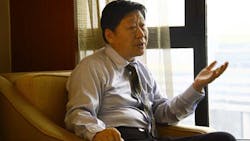Haier: A Sledgehammer Start to Catfish Management
The quest for quality at Haier began with a sledgehammer, or so the story goes.
It began in the mid-1980s when Zhang Ruimin joined a demoralized and money-losing Qingdao General Refrigerator Factory—the precursor to the Haier Group--to help turn things around. In an early display of visual management, he gathered the employees together and, according to the company's website, destroyed 76 refrigerators to raise quality awareness among workers in the face of consumer complaints.
"A quality quest to revive the plant started from that symbolic sledgehammer attack," writes BBC News global business correspondent Peter Day.
More than 20 years later, white goods producer Haier has grown to become one of the few Chinese global brands, and a perusal of Chairman and CEO Zhang's management philosophies may help explain why. Current thinking puts employees front and center in leading the company.
In a recent BBC article, Zhang shared how Haier learned from Japanese companies in the 1980s and from American companies in the 1990s. It then embarked on its own business model, called the win-win model, "aligning employee goals with user needs." According to the article:
So (for example) Haier is trying to use the internet to put customers in touch with the people who make the goods, and workers in touch with the product-people who design them. But doing this is hard work.
"We're still in a trial and error period and we're still exploring new models," says Mr Zhang. "In the past we had examples to follow but now we are in uncharted territory."
Zhang Ruimin calls this "management without leaders". Workers are supposed to be led by the consumers of the things they make.
He adds: "The most difficult thing is that in the past the employees would listen to their bosses, but now they don't have any bosses they have to listen to the users." (BBC News)
The company is pursuing those plans by breaking its workforce into micro companies, "each with a profit and loss account," BBC News says, and implementing what Zhang calls "catfish management."
Read the BBC News article in full at "Smashing way to start a global business."
About the Author
IW Staff
Find contact information for the IndustryWeek staff: Contact IndustryWeek
